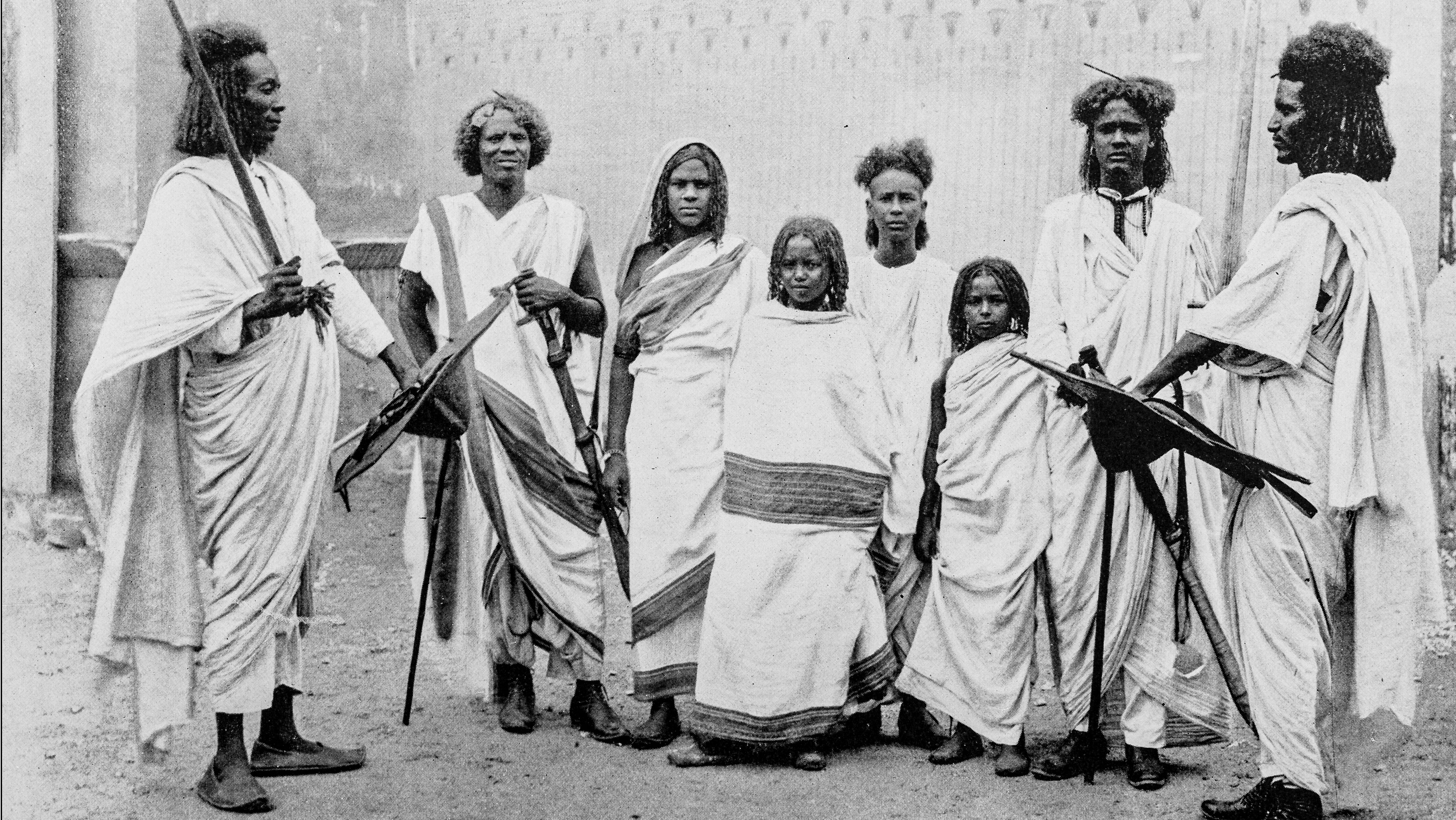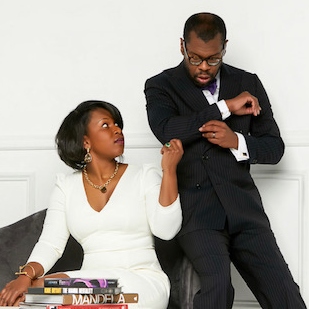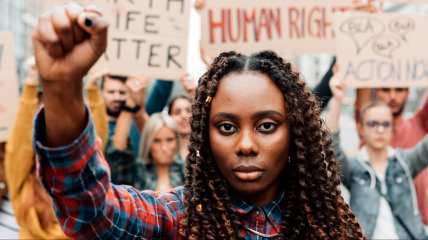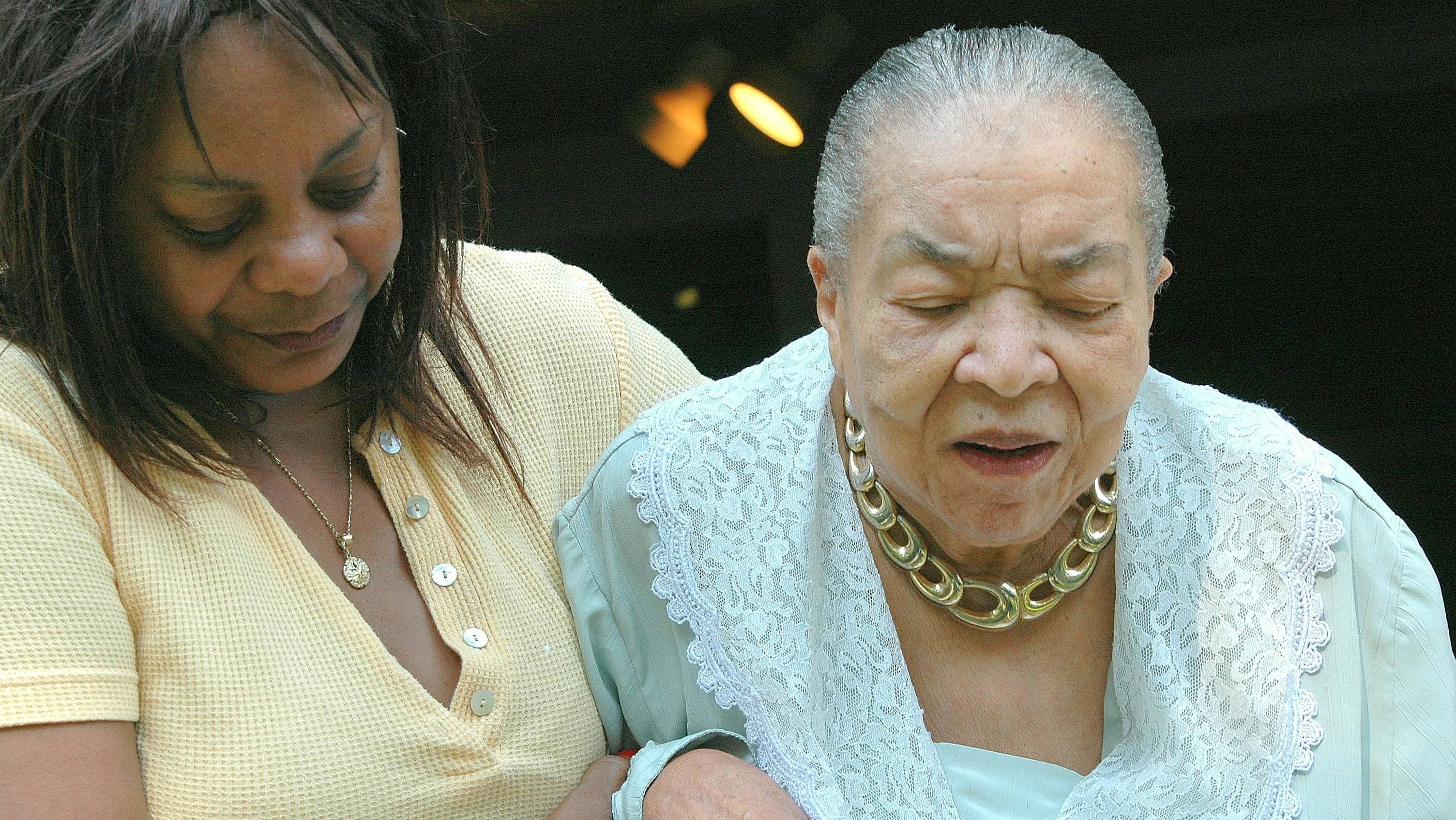Respecting the legacy and sacredness of Black family reunions
From informal congregations to consciousness-shifting protests, both chosen and familial gatherings of Black people remain a source of communal power.
“Notes on faith” is theGrio’s inspirational, interdenominational series featuring Black thought leaders across faiths.
Forgetting all the ashen past —
The hounds, the whips, the wounds of caste,
The Negro lifts his manly brow
To God, and joins the glorious now!
…She captured winds that round us stray;
And lightnings in their fiery play;
Are all compelled to serve the hour
And build the nation’s wealth and power
(Excerpted from “The Freedman’s Triumphant Song” by Albery A. Whitman)

On this weekend 130 years ago, this ode to Black might was recited by its author for an audience of 200 as a group of people of African ancestry gathered at the 1893 World’s Columbian Exposition in Chicago for “Colored American Day.” Taking place just 30 years after Emancipation, this effort to foster a strong and proud Black community would become a significant historic milestone, but initially emerged in response to the demands of protesters advocating for the equitable treatment of Black citizens at the global event.
Spearheaded by Ida B. Wells, the Black protest against discrimination and exclusion by the fair’s organizers took center stage. In a bid to mitigate the impact of the boycott and generate revenue, the organizers of the fair designated Friday, August 25, “Colored American Day.”
Meanwhile, within the Black community, the prospect of a separate event was met with mixed feelings from racial leaders of the day. Frederick Douglass and Ida B. Wells were especially anxious about the perception of coopting and an acceptance of segregation.
“[Wells] believed that a segregated fair day was patronizing,” writes academic and musicologist Marva G. Carter, “and she particularly dreaded watermelons donated for the occasion; the prospect of blacks munching them was reason enough in her book to cause whites to continue withholding equality from African Americans.” Eventually, the leadership proceeded to create a safe space, centering activities that would be for us, by us.
The tradition that has since extended from Colored American Day is not merely a response to subjugation and harm but a nourishing gathering, encouraging and fortifying a crucial building-up of Black families, communities, and the Black nation that exists within the American nation. In this era of Black History and Juneteenth commemorations that have been co-opted, corporatized, and muted in the name of federal observances, what spiritual lessons lie in planning and participating in Black family reunions?
Colored American Day set a precedent for this week(end) to be a perennial time in which various public gatherings/reunions are held throughout the United States. In addition to Sheila Johnson’s Black Family Reunion, the NCNW’s Black Family Reunion established by civil rights stalwart Dorothy Height, and the March on Washington’s 60th anniversary, the 160th anniversary of “Colored American Day” evinces that Black people have long known the importance of creating space for one another in the American public square that is affirming, despite dominant cultural aggression.
During Black family reunions, we celebrate oral and material culture as impartments of wisdom. We focus inward to align while decentering the white audience’s gaze, listening and exchanging comfort as we tell our stories.
On the inaugural Colored American Day, for example, multitudes converged to listen to new music by composers including Harry T. Burleigh and Will Marion Cook, followed by the eloquent words of Booker T. Washington, Hallie Brown, and the formerly enslaved scholar and esteemed former Ambassador to Haiti, Frederick Douglass, who delivered a powerful address at the Haitian pavilion. It is with this speech Douglass asserted there is no “Negro problem” but a nation problem.
Men talk of the Negro problem. There is no Negro problem. The problem is whether the American people have loyalty enough, honor enough, [and] patriotism enough, to live up to their own constitution. We fought for your country, we ask that we be treated as well as those who fought against your country. We love your country. We ask that you treat us as well as you do those who only love a part of it.
Source: Thirteen.org
Douglass’ speech reminds us that we can’t wait for white Americans to include us, walk in truth, tell our history, or even change. Unchecked white supremacist sentiment is too rampant and disloyal for that. Instead, we must increase our directing of focus toward one another, regardless of others.
You, Family, have a rich heritage with sacred bonds. Be assured that you are protected. Go forward knowing there are clouds of witnesses on this earthly plain and beyond, cheering us on. Be open to all the ways family is constructed. Our connection goes beyond biology; it is spiritual with energy that never dies — our family is more expansive than we can imagine. In those moments of coming together, we move from being marked as separated and dispersed to the united body envisioned in Psalm 133:1-3.
How good and pleasant it is when God’s people live together in unity! It is like precious oil poured on the head, running down on the beard, running down on Aaron’s beard, down on the collar of his robe. It is as if the dew of Hermon were falling on Mount Zion. For there, the Lord bestows his blessing, even life forevermore.
Black sacred spaces and reunions transcend mere physical locations, activating spaces and metamorphosing into sanctuaries where history, spirituality, and social transformation converge. As we align, Black family reunions beckon us to embrace the rhythm of our shared heritage, to partake in spiritual rejuvenation, and forge an unbreakable bond as we march toward a future defined by liberation and unity.
As we gather, may we align in the rhythms of resilience. May we experience and carry with us liberation. Let us embrace our identity as a united people, stronger together, manifesting triumph after triumph without end.

Rev. Dr. Alisha Lola Jones is a faith leader helping people to find their groove in a fast-paced world, as a consultant for various arts and faith organizations and professor of music in contemporary societies at the University of Cambridge in Cambridge, England. She is an award-winning author of Flaming? The Peculiar Theopolitics of Fire and Desire in Black Male Gospel Performance (Oxford University Press). For more information, please visit DrAlisha.com.
Rev. Calvin Taylor Skinner is dedicated to empowering frontline communities in Knoxville, Tenn. and the United Kingdom. He uses Faith and Policy to address energy justice, criminal justice reform, voter education/mobilization, electoral politics, and global affairs. Along with his wife, Rev. Dr. Alisha Lola Jones, they lead InSight Initiative, a consulting firm focusing on capacity building and live events production.
TheGrio is FREE on your TV via Apple TV, Amazon Fire, Roku, and Android TV. TheGrio’s Black Podcast Network is free, too. Download theGrio mobile apps today! Listen to ‘Writing Black‘ with Maiysha Kai.


